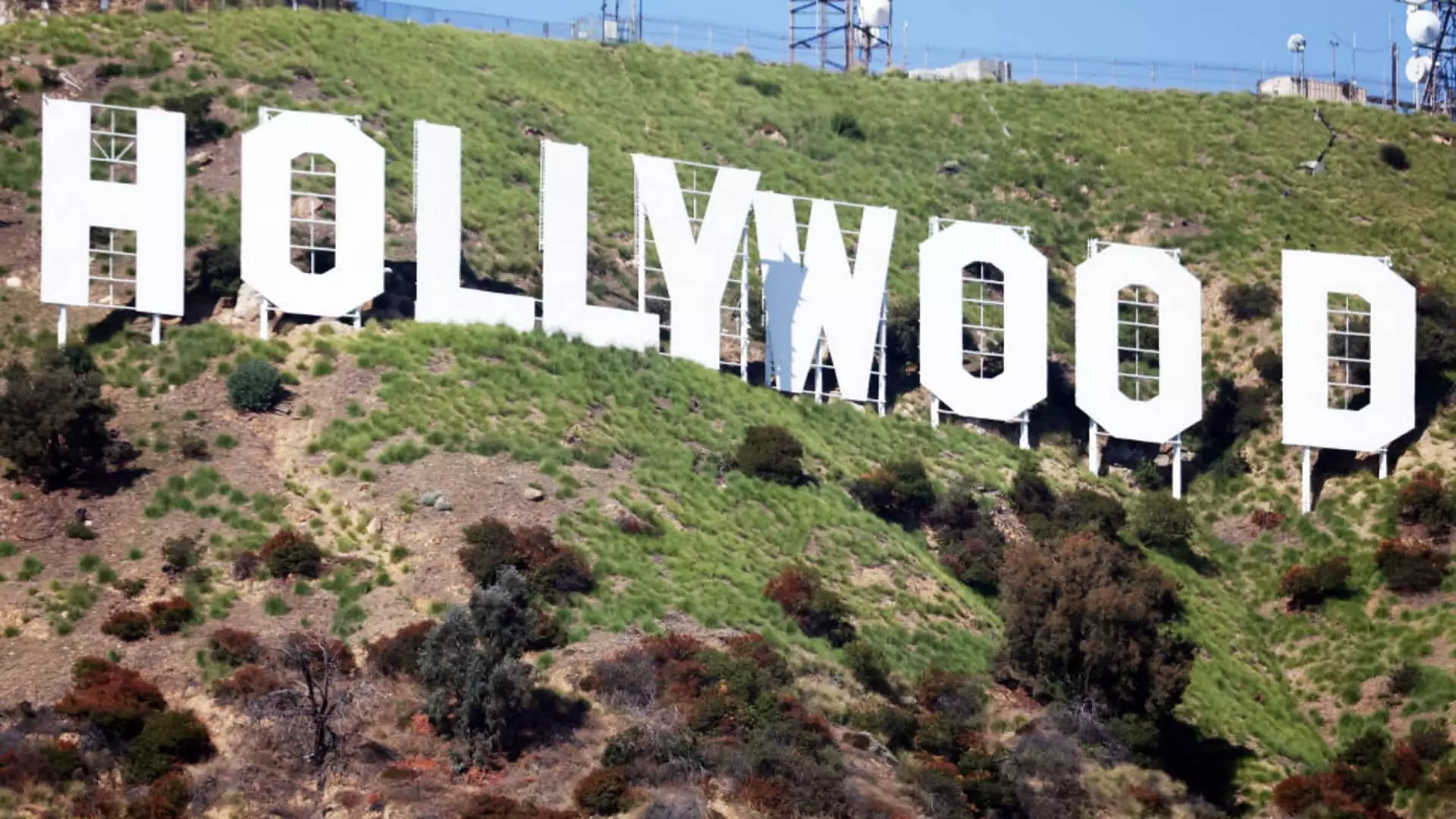When President Donald Trump suggested imposing a 100% tariff on films made abroad, Hollywood investors collectively gasped. The idea of equating foreign-produced films with a national security threat is not only misguided but presents significant economic and creative risks. Simply put, labeling a sector as hazardous without credible evidence can incite unnecessary panic and speculation, destabilizing a multi-billion dollar industry that thrives on global collaboration and exchange.
The Economic Fallout for Studios
Immediately following Trump’s announcement, shares of major studios like Netflix, Disney, and Warner Bros. Discovery experienced notable declines. This knee-jerk reaction from investors reveals the widespread concern regarding the practicality of such tariffs. Is it realistic to believe that a tax on films will significantly affect the ongoing production and distribution of movies? Historically, Trump’s previous 25% tariffs on imports didn’t adversely affect the industry on a production level due to the digital nature of filmmaking today. Retaliatory actions resulting from such tariffs could inadvertently lead to decreased revenues and hindered international partnerships, both of which are essential for Hollywood’s ongoing success.
Confusion on Implementation and Scope
One of the most perplexing aspects of Trump’s announcement is the lack of clarity regarding how these tariffs would be implemented. Which specific projects will be targeted? Does this apply only to films, or will TV shows produced on foreign soil also fall under this sweeping legislation? The ambiguity surrounding these queries leaves many industry professionals scratching their heads. The fear is that without concrete guidelines, compliance will create a chaotic environment fraught with uncertainty, stalling potential collaborations that enhance the storytelling landscape.
A Culture of Collaboration at Risk
Hollywood has thrived on international collaboration for decades, not just because of tax benefits but also due to the cultural richness that different countries bring to storytelling. When projects require unique settings or specialized craft—from filming locations to crew expertise—these international partnerships are irreplaceable. Implementing punitive measures against foreign-made films jeopardizes not only financial relations but also the very essence of creativity that thrives on diverse influences. Artists rely on the freedom to operate across borders without the looming threat of punitive tariffs, which could stifle their creative expression.
Retaliation – A Consequence We Can’t Afford
The idea of inflating costs for international projects raises significant concerns about retaliation from foreign markets. China, a country that has already turned a blind eye to Hollywood, could further impede box office sales, resulting in studios bearing heavier financial burdens. Other countries may follow suit, leading to a ripple effect that diminishes Hollywood’s global viability. The thought of restricting access to wider audiences as a means of national security raises alarms and points to a lack of strategic foresight among policymakers.
In a rapidly evolving entertainment landscape, the need for global cooperation has never been more crucial. Trump’s proposal to levy stringent tariffs threatens the very fabric of Hollywood, sending shockwaves through an industry that has built its foundation on collaboration and international goodwill. At a time when cultures should be coming together, creating barriers will surely lead to cultural impoverishment.

